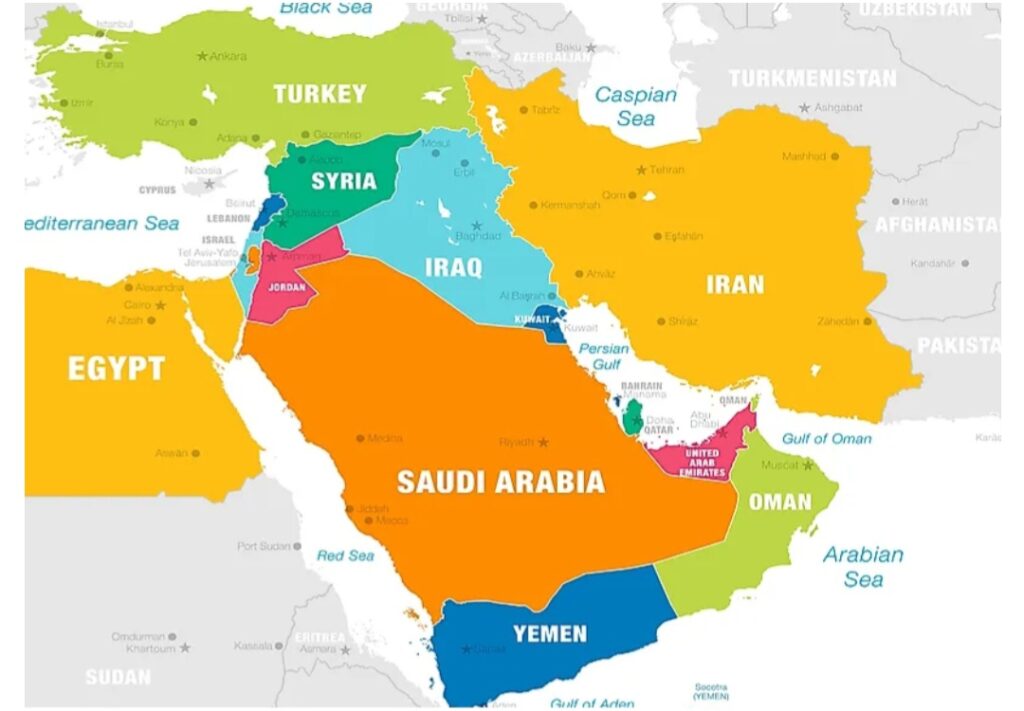By: Seetal Patra, Research Analyst, GSDN

The concept of ‘moderates’ in the case of Middle East crisis is no more a practical lens to find a solution to this hot boil of regional and diplomatic tensions. Moderates are those who try and pursue to bring on peace, cannot be emphasized more with the ongoing Israel- Hamas crisis (geo-political and humanitarian). The moderate powers in the context of Aab world, including Egypt, Saudi Arabia, and Jordan have been mostly unsuccessful this time around in bringing a truce to end the onslaught of the civilians.
To be sure, the Saudi–Jordanian–Egyptian axis has made enormous effort to achieve peace over the last decade, putting forward ideas such as the Arab Peace Initiative and the Middle East Road Map. While the Israelis have talked about being the only party that wants peace, they have made no similar efforts during this period. Instead, they have sought to weaken the idea of negotiated settlements, such as the Israeli separation wall and disengagement from Gaza. Howsoever hard the moderates might have tried in building a boundary of peace in this region, but they have always fallen short, when it comes to effective state building, and developing a system of checks and balances with true accountability and transparency on the cards for the political process.
The façade of resistance to reform is itself using the ascendence of political Islam as a convenient scare tactic, with a General saying in the halls of the elites, “You open up the system, and the Islamists come in.” The elite’s desire in preserving its privileges grew along with its privileges. Merit as a virtue and state loyalty were subordinated to self-aggrandizement. Religious parties coexist with Arab regimes to control the public arena and fill the vacuum left by repression by offering public services.
Muslim-based parties established a wide and solid base of support through their charitable giving and social activities. In any case, religious organizations had gained a considerable advantage over other civil society groups by the time certain Arab countries considered political reforms in the early 1990s. The political inertia that was intended to protect the status quo for the elites at first and then to “shield” society against radical ideologies instead had the opposite effect, with religious groups using Islam as a political tool becoming more prominent and the ruling elite being perceived by Arab public as less “moderate” and more unaccountable. Consequently, the argument put forth by those advocating for pluralistic reform in the Arab world is different: “You don’t open up the system and the Islamists—and only the Islamists—come in and garner mass support.”
This unfortunate situation cannot be justified. In contrast to other regions, which have demonstrated the ability to overcome obstacles and progress, even those as severe as the Arab-Israeli conflict, the Arab world continues to insist that its unique circumstances should spare it from engaging in a substantive reform process.
In the Arab world, a third option is desperately needed: a universally moderate political force that is equally committed to peace and reform, as well as to maintaining political and cultural diversity and peacefully achieving its goals. In today’s Arab politics, if not in the hearts and minds of many Arab citizens, such a discourse is mostly lacking. Throughout society and at all times, there must be a core conviction in and dedication to political and cultural diversity. No party can force its cultural beliefs on the rest of society; no party has a monopoly on power or the truth. Pluralism is impossible in any nation unless all sides agree that the state alone should be in charge of maintaining security and using force, and that no other party has the right to use violence to achieve its goals. This implies that non-state entities, like the numerous armed organizations in Iraq or Hamas or Hezbollah, must completely disarm and become part of their respective nations’ political processes.
A diverse range of ethnic and religious groups make up the Arab globe. These include Christians of all denominations; Jews; Muslims, including Sunnis and Shiites; and other schools of law; in addition to Arabs, Kurds, Armenians, Circassians, Chechens, and Berbers. This civil conversation has to aim towards a society that welcomes all of its members and sees variety as a strength. It should also unwaveringly affirm that women have equal rights and are full participants in society and progress. The best chance of bringing about this kind of genuine transformation and ending the impasse in government is through gradual implementation. However, gradual doesn’t have to mean slow or haphazard, one-off initiatives that don’t contribute to a reform process. Gradual needs to be taken seriously.


Your articles never fail to captivate me. Each one is a testament to your expertise and dedication to your craft. Thank you for sharing your wisdom with the world.
hiI like your writing so much share we be in contact more approximately your article on AOL I need a specialist in this area to resolve my problem Maybe that is you Looking ahead to see you